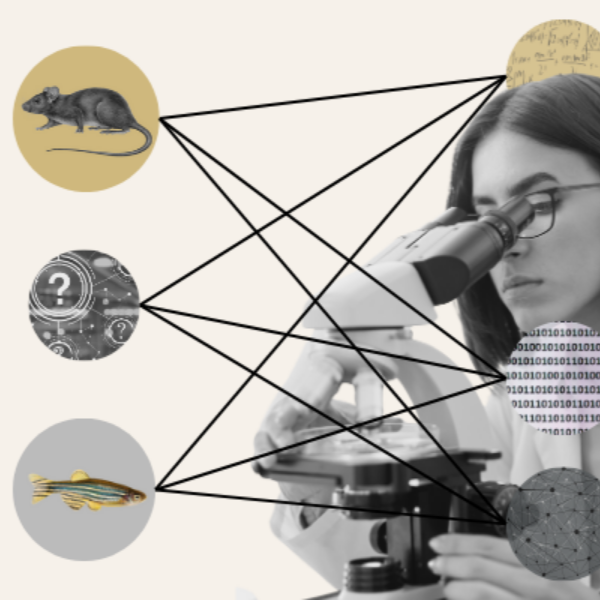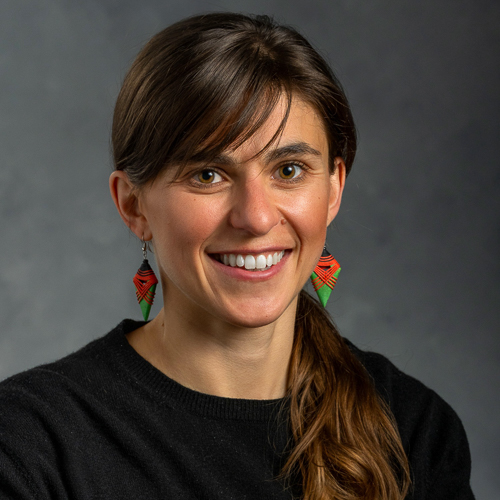Elena Litchman Awarded Grant to to Study Phytoplankton Traits
Aquatic ecologist Elena Litchman is leading a three-year, $993,000 project funded by the National Science Foundation (NSF) Division of Environmental Biology (DEB) in collaboration with faculty at the University of Texas at Austin (UT). The project aims to investigate and to predict intraspecific trait variation in phytoplankton. Christopher Klausmeier, an MSU theoretical ecologist, is a co-PI on the project.
The study will integrate theory and experimental approaches by developing theory for predicting trait diversity within species at different scales and conducting laboratory experiments to determine the trait and genetic relatedness of phytoplankton species isolated from four lakes in southwest Michigan with different levels of nutrients, light and zooplankton predation.
Phytoplankton are the primary producers in most aquatic ecosystems that affect water quality, biogeochemistry and ecosystem functioning. Consequently, intraspecific variation in species’ characteristics (traits) is an important determinant of species’ eco-evolutionary responses to changing conditions, community interactions and ecosystem functioning, making it important to determine what drives intraspecific trait variation in diverse species and to characterize its extent.
“The diversity within species is important as it provides the potential for that species to adapt to novel conditions,” said Elena, who, along with Chris Klausmeier, are MSU Foundation Professors in the College of Natural Science and faculty members at MSU’s Kellogg Biological Station. “We know relatively little about how this diversity is generated and maintained in any ecological system. This project, by combining theory, field sampling and experiments will allow us to gain a better understanding of the mechanisms driving within-species diversity.”
Elena explained that this study will answer several fundamental questions on how limiting and nonlimiting nutrients and other resources and ecological interactions (competition and predation) influence intraspecific trait variation. The results will also help determine whether more closely related strains of a species have more similar traits, investigating a link between genetic and functional diversity at the species level.
“It’s been long recognized that ecology and evolutionary biology are really two aspects of the same field, but in recent years there has been an upswing in models that combine this perspective,” noted Chris. “Our work will contribute to this ongoing synthesis by showing how the same environmental factors drive both species diversity and genetic diversity within species.”
The project will advance knowledge of intraspecific trait variation in ecologically important microbes and phytoplankton and provide insights into how trait diversity is generated and maintained, both within and among species. The information on intraspecific variation in key functional traits of phytoplankton will be useful for aquatic ecologists as well as water quality and environmental assessment specialists.
Eco-evolutionary models developed to predict intraspecific variation in multidimensional trait space at different spatial scales and its relationship to species richness and interspecific variation should be relevant for other organisms, too.
The effects of this research will extend beyond the lab and academic journals.
Students at several different educational levels—postdoc, graduate and undergraduate—will be trained on this project. A high school student from the Kalamazoo Area Math and Science Center (KAMSC) will be involved in the project as well.
One teacher per summer will participate in field sampling and experiments and will then develop exercises with algae on algal diversity, global change and water quality. These exercises, called Data Nuggets, are real data presented in grade-appropriate ways for K-12 students to practice understanding or analyzing quantitative information and to make evidence-based conclusions.
“Including the Data Nuggets project in this work will provide teachers with novel ways to teach students how evolution works in the real world,” Elena said.
Finally, results of the project will be included in the K-12 teacher professional development workshops that provide Professional Development Credit for Texas teachers in evolution.
UT will receive $450,000 of the grant award, with UT integrative biologist, Edward Theriot, acting as a co-PI.



